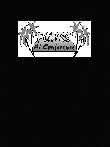Published:
May 1999
Proceedings:
Proceedings of the Twelfth International Florida Artificial Intelligence Research Society Conference (FLAIRS 1999)
Volume
Issue:
Proceedings of the Twelfth International Florida Artificial Intelligence Research Society Conference (FLAIRS 1999)
Track:
All Papers
Downloads:
Abstract:
The study of intelligent agents capable of rational as well as social behaviour has received an increasing attention within Computer Science and in Artificial Intelligence in particular. A theory of agents can be used as a specification language in order to design, build, study and verify multi-agents systems. In this paper after arguing about the importance of common knowledge in multi-agent systems, we provide a method for the formal description of such systems. We present a first-order self-referential framework for reasoning about truth and modal knowledge and common knowledge. We then look at an extension of the basic logical machinery in which knowledge and common knowledge are predicative modalities. We continue by discussing a special case, a well-known logical paradox, the surprise examination, which involves self-reference in a multi-agent domain and we employ common knowledge to investigate it.

FLAIRS
Proceedings of the Twelfth International Florida Artificial Intelligence Research Society Conference (FLAIRS 1999)
ISBN 978-1-57735-080-4
Published by The AAAI Press, Menlo Park, California.
